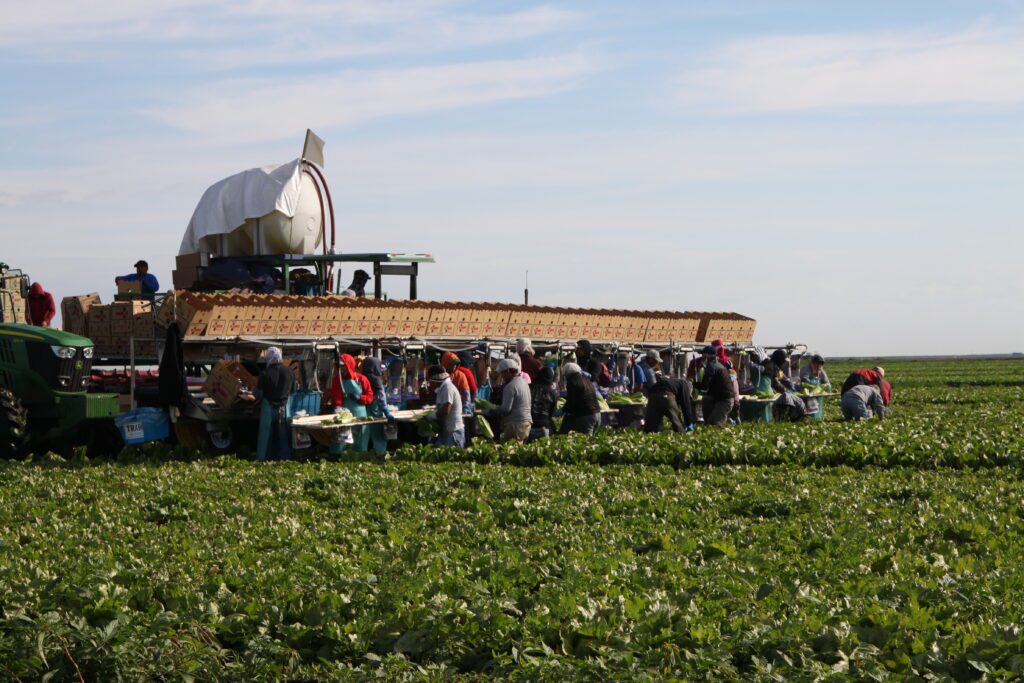Jul 18, 2025Legislation would provide path to legal status for certain immigrants
Bipartisan legislation that would provide legal status for certain undocumented immigrants amid the Trump administration’s ongoing immigration enforcement activities has been introduced.
Under the Dignity Act of 2025, sponsored by Reps. Maria Elvira Salazar, R-Fla., and Veronica Escobar, D-Texas, undocumented immigrants who have been in the United States since before 2021 would be able to apply for up to seven years of legal status with work authorization, according to an NBC News report and a statement on Salazar’s website.
The immigrants would have to pay restitution and check in regularly with the Department of Homeland Security, and the legal status would not allow for any federal benefits or a path to citizenship.
The bill would bolster security measures at the border and require employers nationwide to use E-Verify, the government system for checking whether workers are in the country legally.
 “The Dignity Act of 2025 is a revolutionary bill that offers the solution to our immigration crisis: secure the border, stop illegal immigration, and provide an earned opportunity for long-term immigrants to stay here and work,” Salazar said in the statement. “No amnesty. No handouts. No citizenship. Just accountability and a path to stability for our economy and our future.”
The plan would be paid for with restitution and payroll fees from the participants.
“The Dignity Act of 2025 is a revolutionary bill that offers the solution to our immigration crisis: secure the border, stop illegal immigration, and provide an earned opportunity for long-term immigrants to stay here and work,” Salazar said in the statement. “No amnesty. No handouts. No citizenship. Just accountability and a path to stability for our economy and our future.”
The plan would be paid for with restitution and payroll fees from the participants.
Conflicting messages
Last month, President Donald Trump floated the idea of finding a way for some migrant laborers to remain in the country, but his administration walked back those statements. On July 8, U.S. Agriculture Secretary Brooke Rollins said there will be “no amnesty” for agricultural workers.
Stepped-up enforcement
On June 17, CBS News reported that ICE officials were told they could continue carrying out raids on farms, hotels and restaurants. In a July report, Oregon Public Broadcasting talked to an Oregon cherry grower who said some workers aren’t showing up for harvest because of fears of ICE. Bay Area public broadcasting station KQED reported federal immigration enforcement actions involving farm workers in multiple regions of California including Ventura, Kern, and Tulare counties in June. On July 10, protesters and federal officials clashed at a Southern California farm. The Associated Press reported that Glass House Farms, permitted to grow cannabis in Camarillo, said it was visited by ICE agents. The Los Angeles Times reported that around 200 undocumented workers were arrested. One worker died on July 11 from injuries suffered in the raid, according to reports from media outlets including Reuters and The Guardian.Legislation details
Twenty members of Congress joined Salazar and Escobar in a July 15 press conference at the U.S. Capitol announcing the Dignity Act of 2025. Key legislation provisions include:- Border security: Fully funds modern border infrastructure and enforcement.
- Mandatory E-Verify: Prevents illegal hiring and protects American jobs.
- Asylum reform: Ends catch-and-release, and ensures timely and credible outcomes.
- Dreamer protections: Grants legal status and a path to permanent residency.
- The dignity program: A 7-year earned legal status program allowing undocumented immigrants to live and work legally, with renewable status based on good conduct and restitution.
- Workforce development: Expands training, apprenticeships, and education for American workers.
- Legal immigration reform: Updates visa categories to align with 21st-century economic needs.

















